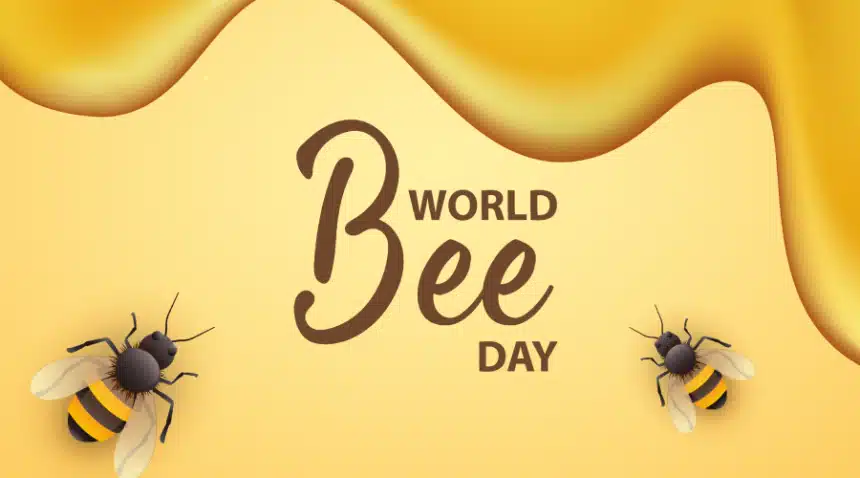Bees, those tiny buzzing creatures that diligently flit from flower to flower, play an enormous role in sustaining our planet. Their tireless efforts in pollination contribute to the growth of crops and the overall health of ecosystems. To honour these remarkable insects and raise awareness about their importance, we celebrate World Bee Day every year on May 20th.
World Bee Day 2023: Theme
In 2023, the theme for World Bee Day centres around “Bee engaged in pollinator-friendly agricultural production”.
Importance of Bees in Our Ecosystem
Bees, as pollinators, are vital for maintaining the balance and biodiversity of our ecosystems. They facilitate the reproduction of flowering plants by transferring pollen from the male part of a flower to the female part, enabling fertilization and the production of fruits and seeds. Approximately 75% of the world’s food crops depend to some extent on pollinators like bees, making them essential for global food security.
World Bee Day: History
World Bee Day, established by the United Nations in 2018, aims to highlight the critical role of bees in sustaining our ecosystems and food production. It serves as a global reminder of the urgency to protect these pollinators and preserve their habitats.
Read More: 20 May in Indian and World History
Challenges Facing Bees
Despite their vital role, bees face numerous challenges that threaten their populations and well-being.
Habitat Loss and Fragmentation
Urbanization, deforestation, and agricultural expansion have led to the loss and fragmentation of natural habitats for bees. As their forage areas diminish, bees struggle to find the diverse range of flowering plants they rely on for sustenance.
Pesticides and Chemical Contamination
The use of pesticides and chemical fertilizers in agriculture poses a significant risk to bees. These substances can contaminate their food sources, weaken their immune systems, and impair their navigational abilities, making it difficult for them to find their way back to their hives.
Climate Change
Climate change brings unpredictable weather patterns, such as extreme heat, droughts, and storms, which directly affect the availability of flowers and disrupt the synchronization between plants and bees. These disturbances have adverse effects on bee populations and their ability to forage and reproduce.

